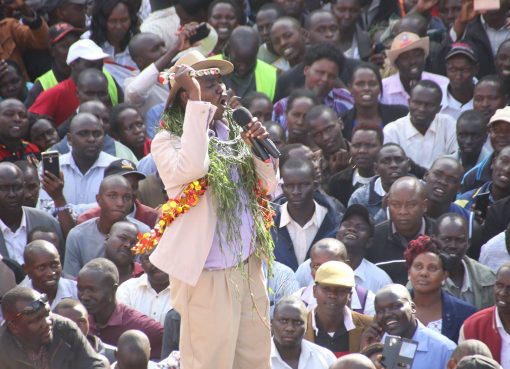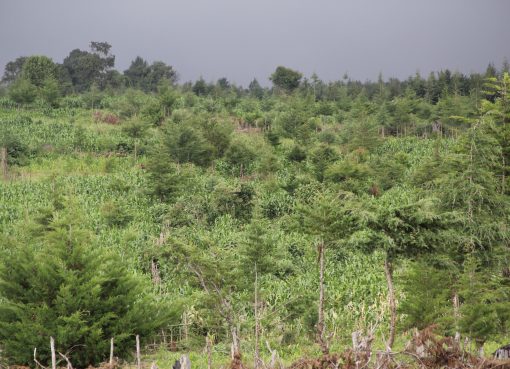“Evicting us from the forest will make us lose our culture; if we move from the forest we will have betrayed our forefathers; killing our people during forceful evictions is not a solution. The government must respect our rights as a community. As a community we don’t know any other home apart from this forest where we were born.”
The foregoing is an unequivocal affirmation of the convictions of the Sengwer community currently living in Embobut Forest in Elgeyo Marakwet County.
Members of the community are now calling upon the Kenyan government to recognise them as the natives and indigenous inhabitants of Embobut forest and stop the forceful evictions that have in the past led to lots of suffering and destruction of property.
Some members of the community have begun going back to live in the forest where they have built temporary structures in areas where they were forcefully evicted in the past; they are however living in fear of a possible repeat eviction by security agencies.
During the recent International Day of the World’s Indigenous People the Sengwer Community gathered at Kaptirbai area within Embobut forest, held special prayers for their ancestors and planted indigenous trees.
The chairman of the Sengwer people living in Embobut forest Paul Kibor Kiptuga vowed that no amount of force by the government will stop them from fighting for their ancestral communal land.
Elias Kimaiyo who is still nursing injuries allegedly sustained after being attacked in 2017 by Kenya Forest Service guards who burnt their houses, said they broke his kneecap bludgeoned him with a rifle butt that also broke his arm.
“I wonder how the government will realise its Big Four agenda including affordable and decent houses when a section of the community like Sengwer can’t be recognised. Talking about affordable housing when the same government burns down homes and evicts minority groups from their ancestral homes is duplicitous”, said Kimaiyo.
The chairlady of the Sengwer living in Embobut forest Mary Komen said the community has continued to preserve its culture of conserving the forest and honey harvesting which has never been a threat to the forest for many decades.
Community leaders blamed politicians from larger communities in the North Rift region whom they claimed allocated land to their communities in the forest saying the invasion and farming activities by those allocated the land caused problems to the Sengwer who have taken care of the forest for hundreds of years without destroying it.
They claimed that the compensation awarded to them by the government largely benefited the settlers adding that the little they received for re-settlement was inadequate and nowhere near the losses they incurred since the extensive evictions by the government in 2014.
Kimaiyo said the community has documented by-laws that if adopted by the government and applied by all stakeholders will enable the Sengwer to sustainably live in the forest without compromising its flora and fauna.
“The Sengwer community should be allowed to collectively manage and conserve Embobut forest as its custodian. Many countries have embraced this method of community based management schemes including such countries like Tanzania, Ghana, Costa Rica, Bolivia and Indonesia which have embraced the method that has seen them succeed in increasing their forest cover”, said Kimaiyo.
In 2018 the European Union shelved a Sh 3.6 billion ($35 million) water conservation assistance scheme to Kenya after forest guards killed a member of a community indigenous to one of the forests involved in the project.
The program was helping Kenya plant trees, restore degraded land and protect water catchment areas in highland forests. Kenya was given a condition by EU to resolve the conflict before the project could resume.
By Kiptanui Cherono
Tuesday, May 20, 2025




